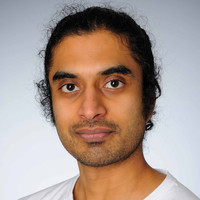Pathological cardiac hypertrophy (PCH) is a life-threatening condition affecting 0.2% of the population in Europe and causing ~0.5% of sudden death in young adults. Due to deleterious mutations in the contractility machinery or external stress, such as increased blood pressure, the heart undergoes abnormal hypertrophic growth leading to PCH. Regardless of the hypertrophic trigger, PCH is primarily fueled by a poorly understood dysregulation of selective mRNA translation. Recently we discovered a novel mechanism by which mRNA translation is selectively regulated via translation specialization factors (TSFs), and ~150 candidate TSFs are dysregulated in hypertrophic patient hearts. Based on our proof of principle study, we hypothesize that translation specialization is essential to maintain homeostasis and function in cardiomyocytes, and its impairment drives PCH. Combining clinically relevant, patient-derived hiPSC-based cardiac hypertrophy models, including human cardiac organoids, with state-of-the-art approaches to study translational control mechanisms, we will advance our currently rudimentary understanding of translation control in PCH as a prelude to developing new therapeutic innovations.
Collaborators:
Prof. Eric Van Nostrand, Baylor College of Medicine, USA
Prof. Michael Petrascheck, Scripps Research Institute, USA
Prof. Leos Shivaya Valasek, Czech Academy of Sciences, Czech Republic
Dr. Sasha Mendjan, Institute of Molecular Biotechnology, Vienna, Austria
Prof. Argyris Papantonis, University of Gottingen, DE
Prof. Malte Gather & Prof. Marcel Schubert, Humboldt Centre for Nano- and Biophotonics, University of Cologne
Prof. Christian Frezza, CECAD, Cologne
Prof. Dr. Aleksandra Trifunovic, CECAD, Cologne
Prof. Dr. Miguel A. Alejandre Alcázar, Faculty of Medicine, University of Cologne
Dr. Ina Huppertz, MPI-AGE, Cologne
Relevant Publications
1. Bartsch D, Kalamkar K, Ahuja A, Lackmann J W, Bazzi H, Clamer M, Mendjan S, Papantonis A, Kurian L. mRNA translational specialization by RBPMS presets the competence for cardiac commitment in hESCs. Science Advances. 2023 Mar 29;9(13):eade1792. doi: 10.1126/sciadv.ade1792.
2. Frank S, Ahuja G, Bartsch D, Russ N, Yao W, Kuo JC, Derks JP, Akhade VS, Kargapolova Y, Georgomanolis T, Messling J, Gramm M, Brant L, Rehimi R, Vargas N E†, Kuroczik†, Yang T P, Sahito R G A, Franzen J, Hescheler J, Sachinidis A, Peifer M, Rada-Iglesias A, Kanduri M, Costa I G, Kanduri C, Papantonis A, Kurian L. yylncT defines a class of divergently-transcribed lncRNAs and safeguards the T-mediated mesodermal commitment of human PSCs. Cell Stem Cell. 2019 Feb 7;24(2):318-327.e8.
3. Ahuja G, Bartsch D, Yao W, Geissen S, Frank S, Aguirre A, Russ N, Messling J, Dodzian J, Lehmann K, Vargas N, Muck JS, Brodesser S, Baldus S, Sachinidis A, Hescheler J, Dieterich C, Trifunovic A, Papantonis A, Petrascheck M, Klinke A, Jain M, Valenzano D, Kurian L. Loss of genomic integrity by lysosphingolipid imbalance drives ageing in the heart. EMBO reports 2019 Mar 18.
4. Kuo CC, Hanzelmann S, Sentürk N, Frank S, Zajzon B, Derks JP, Akhade VS, Ahuja G, Kanduri C, Grummt I, Kurian L, and Costa IG. Detection of RNA–DNA binding sites in long noncoding RNAs. Nucleic Acids Research. 2019 Jan 30.
5. Ju Lee H, Bartsch D, Xiao C, Guerrero S, Ahuja G, Schindler C, Moresco JJ, Yates JR 3rd, Gebauer F, Bazzi H, Dieterich C, Kurian L, Vilchez D. CSDE1 regulates neurogenesis from human embryonic stem cells via post-transcriptional modulation of FABP7 and vimentin. Nature Communications. 2017 Nov 13;8(1):1456.
6. Kurian L, Palanimurugan R, Gödderz D, Dohmen RJ (2011). Polyamine sensing by nascent ornithine decarboxylase antizyme stimulates decoding of its mRNA. Nature 2011; 7;477(7365):490-4.
The Kurian lab employs pluripotent stem cells and cell fate engineering (2D differentiation and organoid models) in combination with systems biology and genome editing approaches to reconstruct and investigate human cardiac development and disease.
We aim to advance our currently rudimentary understanding of the role of translational control on etiology PCH and determine the pathomechanisms. In addition, our study will reveal the regulators and mechanisms that maintain translational homeostasis to control cardiomyocyte function, highlighting how ribosomes act as unifying hubs for selective gene regulation rather than a constitutive protein synthesis factory. Through the identification of cardiac hypertrophy-associated TSFs this project will reveal new therapeutic targets. In addition, in collaboration TACIT Therapeutics, we aim to develop off-the-shelf, safe, non-immunogenic RNA editing tools as a therapeutic proof-of-concept for the leading genetic causes of PCH.

Institute for Neurophysiology & Center for Molecular Medicine Cologne
CMMC - PI - A 08
show more…
+49 221 478 89692
Institute for Neurophysiology & Center for Molecular Medicine Cologne
Robert-Koch-Str. 21
50931 Cologne
PostDoc
Jakub Zeman
PhD student
Dominik Aschemeier, Hanh Ha
Kalamkar Kaustubh, Zhanhua Zhang
Master student
Lea Lauterjung
Visiting Scientist
Mattias Köning, Nachiket Pathak